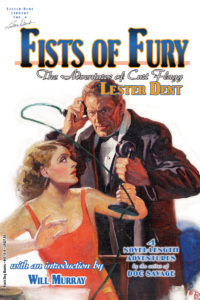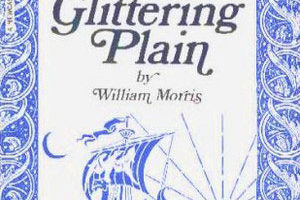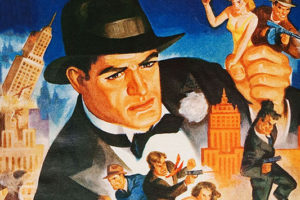 I have posted on several of Lester Dent‘s shorter series character. One I’ve missed — and his first — is Curt Flagg, who appeared in Dell magazines.
I have posted on several of Lester Dent‘s shorter series character. One I’ve missed — and his first — is Curt Flagg, who appeared in Dell magazines.
Black Dog Books put out a series of five books in the “Lester Dent Library”, which are focused collections of pulp stories that Dent wrote before and during the time he was writing Doc Savage; and the fourth volume is on Curt Flagg.
This is another good series of works by Dent, and here you can see him developing into the writer who would soon do Doc Savage. In addition to the four Flagg stories in Fists of Fury: The Adventures of Curt Flagg, we also get an intro by Will Murray that shows what led Dent to do these stories and his progression as an author, and another that looks specifically at the fourth story and its discovery.
The Flagg stories were done when Dell editor Richard Martinsen was impressed by Dent’s works, and took him under his wing, having him write for several of Dell’s pulps. Sadly, the Great Depression caused an early end to this, and Dent had to move on.
Also included are ideas and outlines for a couple of the stories, and an outline for a planned fifth Flagg story, “The Jade Ogre,” which Murray would turn into a new Doc novel.
The Flagg stories are:
- “Wildcat,” Scotland Yard International Detective Stories, March 1931
- “Doom Ship,” Scotland Yard International Detective Stories, May 1931
- “One Billion—Gold!” Scotland Yard International Detective Stories, June 1931
- “The Sign of the Adder,” All-Detective Magazine, November 1933
None of the four ran under Dent’s name, and you do have to wonder how this might have hurt his writing career at the time. The first three appeared under very generic names like “A Tulsa Reporter.” And the fourth, which appeared two years later, ran under the name of “John Wiley,” which delayed its discovery. It was originally titled “Fear Master,” and was cut for publication. Sadly, the original is no longer available.
Curt Flagg is no Sherlock Holmes, nor Doc (but you see elements of “Renny” Renwick in him). There is little gathering of clues and working out whodunit. Instead, Flagg is a typical pulp man of action, punching (or shooting) his way to the story’s conclusion. He starts as a field operator, and moves up to be partner in the detective firm he works for by the third story, and is now gaining assistants.
The first story, “Wildcat,” has Flagg head to Oklahoma to deal with a matter. Someone is killing Osage Indians and blaming it on Blue Eagle, his client. Can Flagg figure out who is behind it?
“Doom Ship” has Flagg off on a ship to London (the original plans are to have the story conclude there), dealing with strange “fog deaths.”
“One Billion-Gold” is set in New York, and centered around a group of gem smugglers with much bigger plans, including getting a dirigible.
The last story takes Flagg to D.C. where he must confront a super-crook known only as “The Adder.”
As a fifth Flagg story was planned, you have to wonder if Dell hadn’t cut back, what might have happened with this character? And if Dent had been credited on these works, what direction his career might have taken? But we do have the stories that do exist to enjoy.



